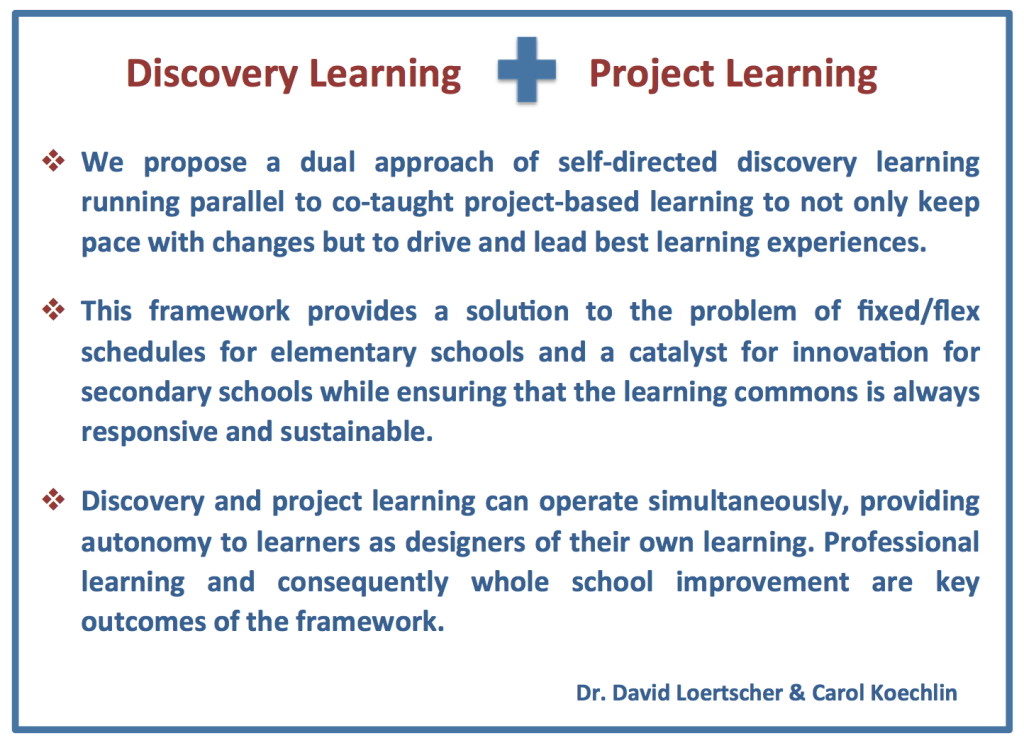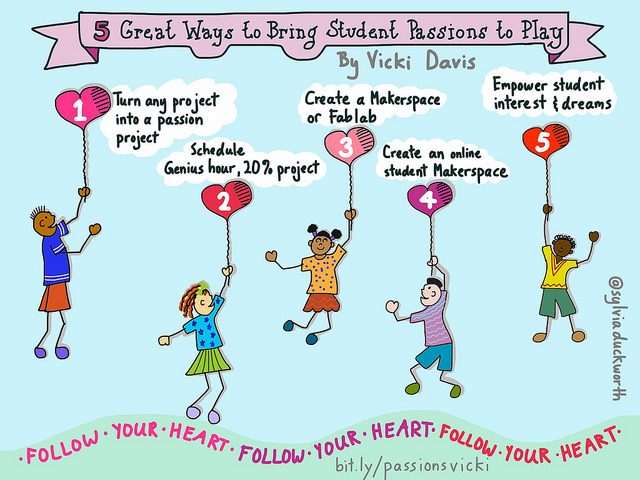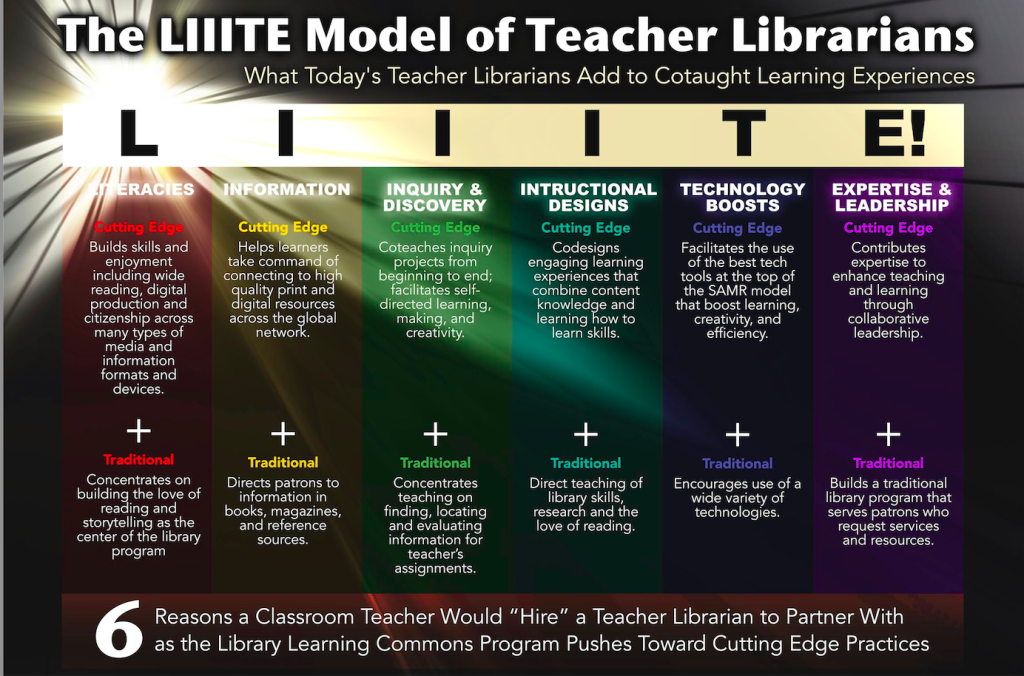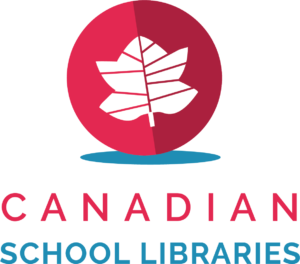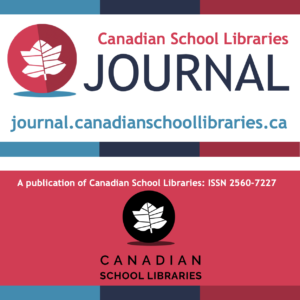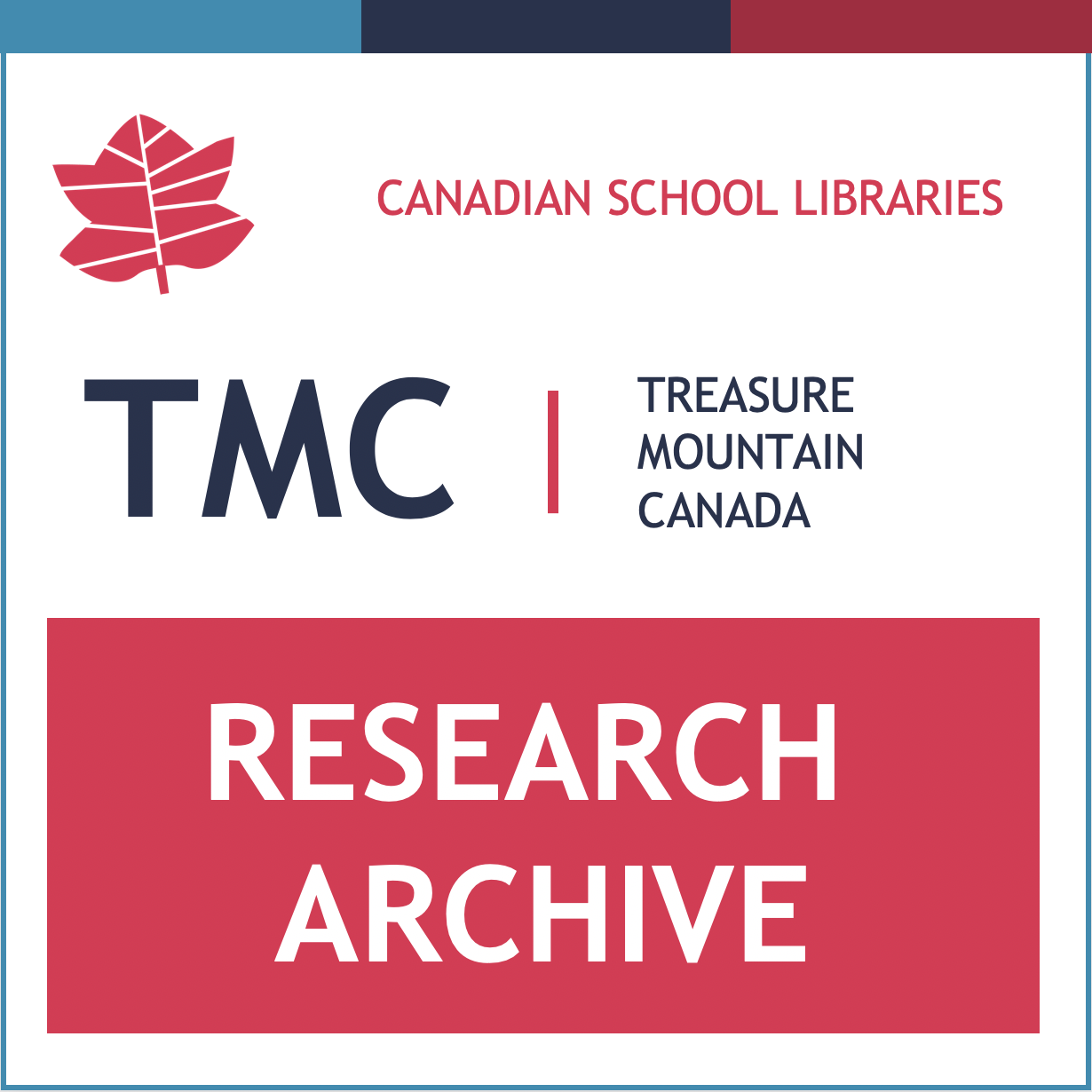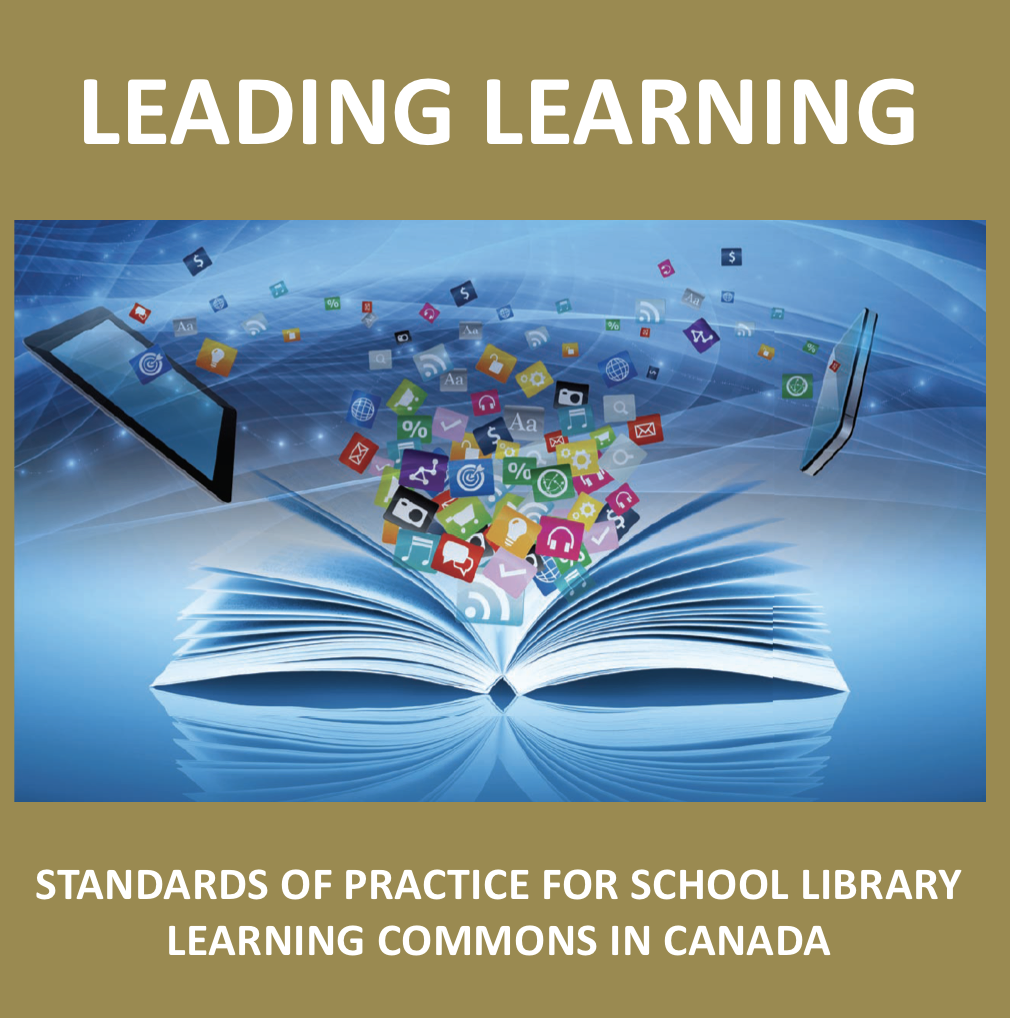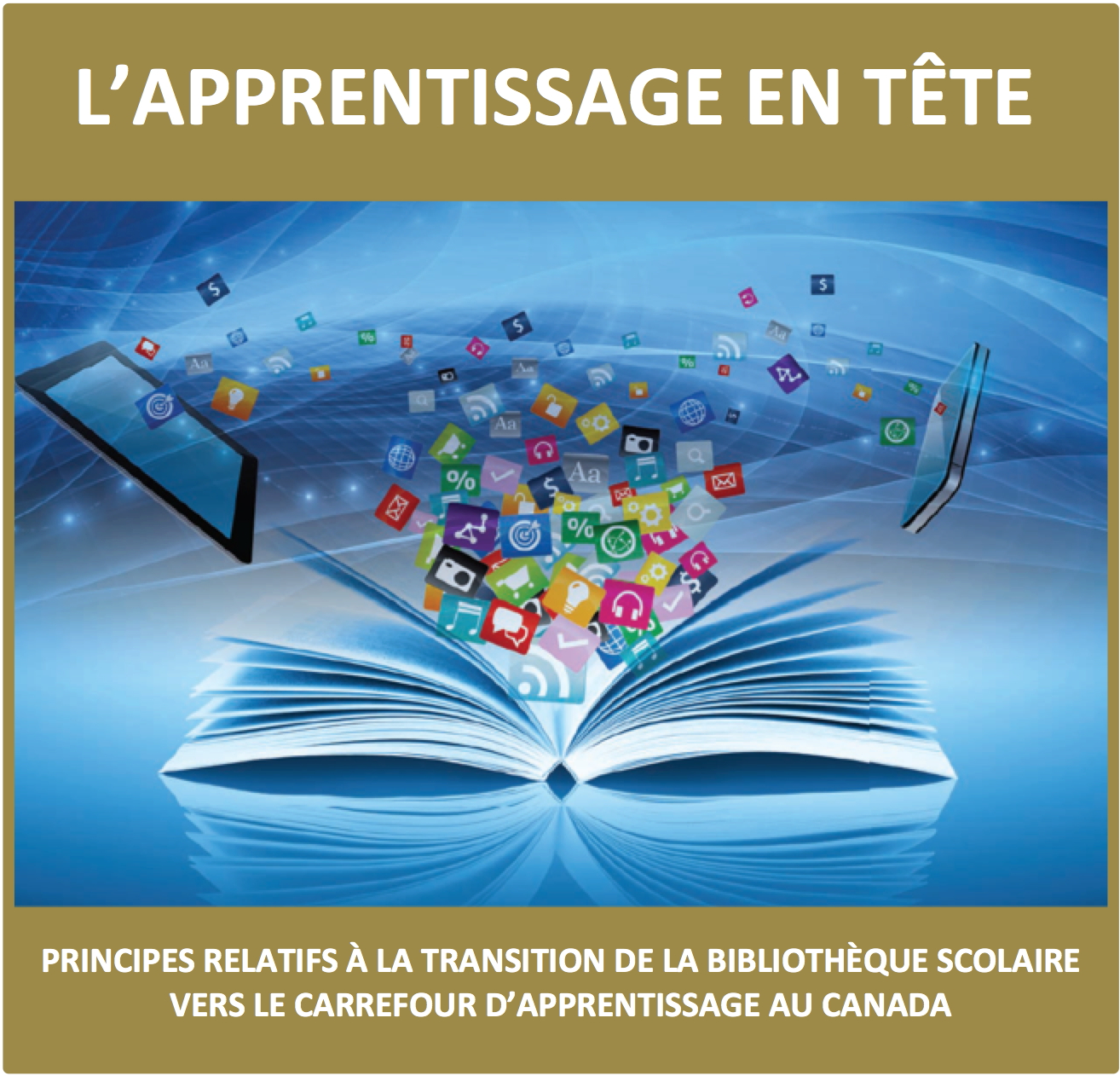Three Big Ideas for the School Library Learning Commons: My Take-Aways from Super Conference 2016 and Treasure Mountain Canada 4
Dr. David Loertscher and Carol Koechlin identify two key dynamics of the school library learning commons: discovery learning and project learning. Discovery learning is a new way to frame one of the core values of learning in the library: the free exploration of ideas. We have always aligned this value with resource-based learning, reading engagement, and freedom to read, and indeed I think there’s room for explicitly framing reading engagement as an essential component of discovery learning. I’ll leave that idea for another post, and concentrate now on Loertscher and Koechlin’s examples of discovery learning approaches: making and makerspaces, design thinking, genius hour, growth mindset, invention, entrepreneurship, higher-level thinking, self-directed learning, independent learning, and play and experimentation.
Clearly these approaches focus on the library as a creative space: a place for moving beyond knowledge acquisition to knowledge-building. And most of all, this approach puts students in control of their own learning, fueled by their own passions. The model explicitly places this core value as an intentional framework for learning.
Framing the library learning commons program around the two core streams of discovery and project learning provides new opportunities for strategic and curriculum alignment, effective scheduling, student assessment, and most of all for program assessment and development – measuring what matters. But more about that later…
2. Co-Teaching
Dr. Loertscher recently published an important study (Collaboration and Co-Teaching: A New Measure of Impact. Teacher Librarian 42:2, Dec2014) about the impact of co-teaching between the teacher-librarian and subject/classroom teacher. Loertscher looked at two groups of teachers: one group who teach alone, and another group who co-teach with their school’s teacher-librarian. He asked both groups how many of their students meet or exceed their highest expectations for a learning experience. The results were predictable, but quite startling and encouraging in the disparity between the two groups. The teachers who teach alone reported an average of forty-eight percent of their students met or exceeded their highest expectations, while the co-teaching group reported a whopping seventy to one hundred percent satisfaction rate. This simple and replicable research affirms everything that we know about student success and collaboration between the teacher-librarian and teaching colleagues, set as a guideline for us as early as 1982 with the ground-breaking Ontario guideline Partners in Action through to Together for Learning and Leading Learning, and affirmed by many large-scale research studies.
Yet so many times we hear that the biggest challenge for the teacher-librarian is attracting their colleagues to collaborative teaching. It is extremely clear to me that this greatest challenge also yields the greatest rewards – clearly for students and learning, but also for demonstrating our own program efficacy. Taking leadership with this, especially in the context of today’s overall focus on collaborative inquiry learning and with all of the new, technology-enabled contexts for greater collaboration, should be the first priority for teacher-librarians. Principals should expect their schools to benefit from the added value of co-teaching between professionals in the library learning commons.
3. Measuring What Matters
We were delighted to have David Cameron, Research Director at People for Education, as the keynote speaker for Treasure Mountain Canada.
People for Education is engaged in a large, cross-disciplinary research project investigating the factors beyond cognitive development that affect students’ success at school.
The evidence is clear that for long-term success, students need more than foundational skills in literacy and numeracy. However, there is a glaring lack of information regarding school success in other domains. This leaves large gaps in our understanding of how well schools are meeting both the broader needs of students and the expectations of policy-makers, parents, and the public.
Schools support the development of good physical and mental health; strong social-emotional skills; creativity and innovation; engagement in democracy and citizenship; and provide positive school climates and quality learning environments. However, there are few, if any, tools to reliably evaluate and report on schools’ progress in these vital areas. (People for Education, Measuring What Matters)
We know that People for Education’s research foci on health, creativity and innovation, social-emotional skills, citizenship, and quality learning environments are of direct relevance to school library practice. Indeed Mr. Cameron has expressed some interest in the six years of research fostered by TMC symposia. Ultimately People for Education’s research findings should help to inform our own practice as we strive to assess and share the impact of the school library learning commons program on all aspects of student growth and development.
I can’t help but extend the idea of measuring what matters to the area of discovery learning. The discovery learning approaches summarized by Loertscher and Koechlin – making and makerspaces, design thinking, genius hour, growth mindset, invention, entrepreneurship, higher-level thinking, self-directed learning, independent learning, and play and experimentation – are by definition unstructured and student-initiated. We understand the potential of these new extensions of the library’s mission of enabling the free exploration of ideas, yet we are left with the perennial problem of assessing impact on learning. Because so much of the library program’s impact has been in the intangible and difficult to measure areas of learning – even in the cognitive domain – we may find it difficult to find support for these strategies, and sustain a rich discovery learning approach over time.
It is time for us to really examine our own approach to overall program assessment, and the value of intentional goal setting, data gathering and annual reporting. Applying a teacher inquiry model to program planning and assessment needs to become ingrained into practice, for our own growth and for gathering a rich body of evidence for demonstrating the value of the school library learning commons to the broader educational community. Our next big question, I think!

